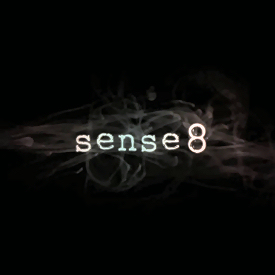
Back in the late 1990s, I was living in Edmonton, Alberta, and doing computer programming (IBM AS-400, if you were wondering) for a company called FAS, or Funds Administrative Services. My wife, the Beautiful & Talented Lynne Taylor Fahnestalk, and I were reasonably newly married, only having been together since 1989. (This year will mark 32 years of married bliss!) We lived in a basement suite with my 3-legged Siamese cat “Chu” (Chulalongkorn), and watched a lot of rented movies, often the worst B-movies we could find. But thanks to our friends—and my co-worker—Kim Hay and his wife Stephanie Hay, who was somehow related to one of the lead actors, Michael McManus, we also found the oddest Canadian-German genre TV series we’d ever seen, called LEXX. Although it was very uneven—Season 1 was a lot different from Season 2 and 3, and even between episodes, in terms of plot, character, and even sets—it was unique. We became fans, but hardly thought of it after we’d left Edmonton for the Wilds of Vancouver (well, Coquitlam, actually, at first).

Fast forward to 2021 and everyone being stuck at home meeting via Zoom. My fellow Amazing® Online columnist, R. Graeme Cameron (“the Graeme”), presents a weekly meeting for writers and members of SF Canada, the Canadian equivalent of the Science Fiction & Fantasy Writers of America (SFFWA) on Zoom. And one of those writers I met at the weekly meetings is a fellow named D.G. Valdron. Up until last week, I’d never enquired—or even Googled—about Valdron’s writing; I’m kind of a laissez faire guy; when meeting new people I just take ‘em at face value until I get to know them better. (Drives my wife crazy that I’m so incurious about people’s backgrounds, etc.)
Well, last week I learned that “Den” Valdron had written a book, called LEXX Unauthorized: Backstage at the Dark Zone, available as a Kindle purchase (for only $3.99 CDN) from Amazon—see link. Well, it rekindled (pun intended) my interest in this quirky and unique TV show, so I just had to rewatch Season 1, Episode 1, called “I Worship His Divine Shadow.” But before I could write about either the book or the TV show, I had to finish reading the book. The series, by the way, is a Canadian/German/Showtime—this is where the funding comes from—production.
Well, folks, I have to say I’m impressed with Den’s writing; it’s engaging, and lively, and informative. He keeps it personal, rather than a dry, historical “they did this and that” sort of narrative, enlivening it with his own takes on certain things, and giving much more background information that you’re likely to find even on the DVD’s “extras.”
In this book, he covers all four seasons of LEXX, which were designed as movies, rather than as episodic TV. To those of us who watched it as TV, it seems a slightly odd way of phrasing things, but Valdron was given extraordinary access to the behind-the-scenes stuff. One producer even sent him rough cuts on VCR tape of unfinished shots without CGI. Valdron also covers concepts that were developed but not used for various reasons; for example, one scene on a planet covered with mounds of skulls and bones—Showtime wasn’t having anything like that aired on its channel. Another part featured various sexy and fairly explicit scenes which, thanks to the American ideas of what was permissible and what wasn’t, was cut significantly into something else.
All in all, it’s a fascinating look into a series that was in some ways ahead of its time both in concept and execution; one that took what could have been a fairly standard SFnal set of concepts and distorted them into some very surreal imagery. (Besides this book, Valdron also has several others on LEXX that are available on Amazon. Just sayin’.)
That’s not to say this book is perfect; aside from his ability to write an exciting and revealing book about a cult TV show, Valdron needs both an editor and a proofreader. Like many self-published works, this book is rife with grammatical, spelling and punctuation errors, including misspelled names, run-on sentences, dangling clauses, and so on. (Because I’m somewhat OCD about that stuff, it really stands out to me.) But despite these “mechanical” flaws, the book is, as I’ve said, an engaging and worthwhile read for fans of the show (and indeed, for fans of televised SF) Probably even a must-read!

And now, about the first episode of this strange and amazing TV series. In case you’ve never seen it (and most of its seasons are hard to find on Amazon), let me give you a bit of description. Because the first episode is fairly straightforward, it’s one of the easier ones to talk about, especially if your exposure to really weird SF has been limited. By the way, for those of you who are used to wide-screen TV, this is 4:3 aspect ratio; it’s from before the wide-screen days.
The main action of LEXX takes place at the beginning in The Cluster, headquarters of “the 20,000 worlds.” There’s a short narration by Kai (Michael McManus), the “last of the Brunnen-G” (apparently a group or civilization of warriors who won the Insect Wars), and who is, according to a prophet, supposed to eventually end the Divine Order, but not today, as today is the day he dies. We see Kai and the remainder of his Brunnen-G fighters going against a giant space web; all the other Brunnen-G are killed, but Kai manages to crash his insectile spaceship into the control of the web and he dies too. But because he is the last of his kind, His Divine Shadow (Walter Borden)—the ruler of the 20,000 worlds—takes his memories and orders that his body be preserved.
We then cut (2008 years later) to Stanley Tweedle (Brian Downey), a fourth-class security guard who’s trying to sleep in; after being told he’s got over 990 demerit points already, he reluctantly goes to work. He’s guarding an entry to The Cluster, but has so little to do, he’s throwing rubbish at the back of a guard robot (#790, played by Jeffrey Hirschfield, who co-developed the series), trying to bank it into a disposal port on the floor. A prisoner ship approaches the port, and Stanley demands the authority code from the Line Major in charge; she can’t remember it and Stanley refuses to allow the ship to dock, in direct violation of her order—she says “nobody asks for that code anymore.” He is finally overruled and told that he will be punished for refusing a direct order; he learns that he will lose three organs unless he doesn’t return to the punishment station before it closes for the day. Otherwise, it’s termination for him. Stanley dawdles and finally decides, with only a minute or so to go, to give up the organs; he is typically too late and the station closes down. He is immediately broadcast as a fugitive who will be terminated immediately if caught.
Meanwhile, the prisoners are being brought in attached (hanging on a rail) to giant hanging metal slabs; they are given a holographic defense attorney in front of a holographic judge. Typically, the prisoner’s name and offense are slotted into a prerecorded statement by the attorney, ending with “[the defendant] throws him/herself on the mercy of His Divine Shadow”; sentence is often termination followed by the removal of brain, liver, lungs and a few other organs, with the remainder packaged for reuse as organic material for whatever purpose His Divine Shadow sees fit. One of the prisoners is Zev Bellringer (Lisa Hines), a large, overweight and unprepossessing woman wearing a white wedding dress and a bridal headdress) who’s accused of failing to fulfill her wifely/marital duties. We see in a recording that her intended, a 15-year-old (or so) boy, called her a “cow” and refused to marry her; she then punched him out. She is sentenced to be programmed as a love slave. (During reprogramming, a Cluster Lizard, a large, segmented wormlike thing with lots of teeth, is accidentally made a part of her person; she is body-modified into a beautiful platinum-blonde woman (Eva Habermann), and robot 790 loses his body; she delivers its head into the love-slave programming. 790 immediately becomes smitten with Zev. Another prisoner is the cannibal Gigarotta (Ellen Dubin), who wears a suit made of human skin. She will become a recurring character in other episodes, but her appearance in ep. 1 is fairly brief.
Those are the main characters of episode 1; the guest star is Barry Bostwick, whom we all remember as Brad Majors from The Rocky Horror Picture Show. He plays Thodin, leader of a band of rebels—who have a history with Stanley, as we find out.
Cutting this description short, as this is already a longish column, His Divine Shadow revives Kai to be his dead/undead assassin—without his memories, Kai is pliant to His Shadow’s will; Stanley unwittingly gains control over the Lexx, a giant dragonfly made into a spaceship-destroyer that His Shadow had planned to use to destroy heretic worlds (it’s that powerful). He and Zev, unwittingly joined by Kai (and, briefly, Gigarotta), escape with His Shadow’s predecessor brains and, pursued by His Shadow’s minions, escape from the Light Zone into The Dark Zone. (It’s a yin/yang sort of universe.)
Literally, you’d need a book the length of D.G. Valdron’s LEXX Unauthorized: Backstage at the Dark Zone to describe it at length. And I see I’ve forgotten to mention one of the key elements of LEXX: its CGI. From being started in 1995, this show is well ahead of its time in terms of both how much CGI it used and the quality of CGI it used! After seeing Season 1, Episode 1 on a modern 50″ TV (well, it was 4:3, so didn’t fill the screen) we were impressed with how good both the practical (that is to say real and/or mechanical) and CGI effects looked. And some of the sets are amazing: both organic and mechanical looking in spots.
To sum up: I highly recommend both the book and the series, assuming you are able to find more than season 1; Amazon’s a good starting place for the latter.
Please leave a comment on my column. You can comment here, or on Facebook, or even by email (stevefah at hotmail dot com). All your comments are welcome—but I just might argue with you about them. My opinion is, as always, my own, and doesn’t necessarily reflect the views of Amazing Stories or its owner, editor, publisher or other columnists. See you next time!
Editor’s Note: The Fahnestalk family recently lost a close family member and have started a crowdfunding site to help with some of the associated expenses. You can learn more here.











This is so incredible for the first Lexxian’s who needed to find out about the entire adventure behind getting the program dispatched. It’s as of now prove to be handy for my own book talks as a great deal of karma is required in a similar field’s